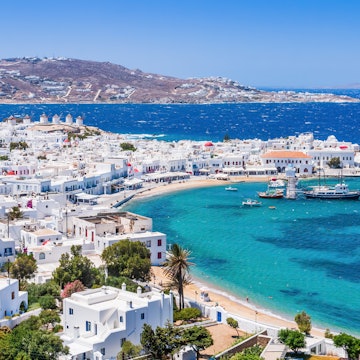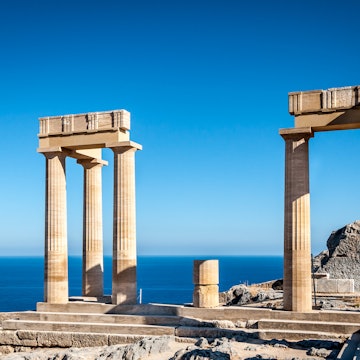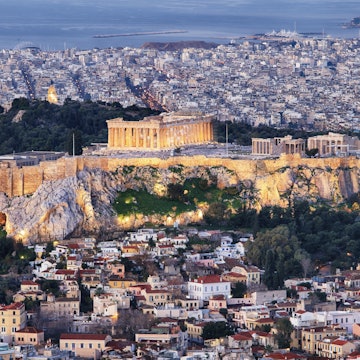

An event at the Athens City Festival, which takes place each May. Konstantinos Dimitros/Shutterstock
Hardly a week goes by in Greece without some kind of festival or celebration. Such events range from small village observances to internationally famous blowouts – with the calendar most packed (naturally) in the summer.
Many Greek festivals connect with the nation’s ancient heritage, while others are tied to the Orthodox church, which continues to play an important role in the nation’s social fabric. Other exciting events are purely secular, celebrating music, the arts and, well, the art of just having a great time.
Here are our six favorite Greek festivals, each one worth planning a trip around.
1. Rock out at Release Athens and other major music festivals
Release Athens is the Greek entry on the circuit of must-visit European rock festivals. The event spans several weeks at Plateia Nerou, an open space next to Flisvos Marina, and over the years has drawn such headlining superstars as Arctic Monkeys, Primal Scream, the Pet Shop Boys, Iggy Pop, New Order, Kylie Minogue and Duran Duran, as well as top heavy-metal bands.
Other notable Greek music festivals include Rock Wave in Terra Vibe, just outside Athens in Malakasa; and the Eject festival, held at the Athens Olympic Stadium. The Athens Jazz at Technopolis and the Athens City Festival – with its more than 200 events held in public spaces every May – are free for everyone.

2. Channel ancient culture at the Athens Epidaurus Festival
For 70 years, the Athens Epidaurus Festival has been a highlight of Greece’s cultural calendar. Over the decades, the festival has earned international acclaim and recognition with its world-class performances and shows.
Theater, ancient drama, dance, opera, and classical- and contemporary-music concerts are presented throughout the summer in venues that range from ancient theaters to abandoned industrial sites and warehouses.
Top among them is the ancient Theater of Epidaurus, a UNESCO World Heritage Site dating to the late 4th century BCE that’s less than a 2-hour drive from the capital. Ancient drama performances take place at the amphitheater every Friday and Saturday during the summer months – and experiencing a work of theater the way the ancient Greeks did is a once-in-a-lifetime experience.
In the foothills of the Acropolis, the Odeon of Herodes Atticus, dating to 161 CE, is another magnificent site that hosts performances almost every day in the summer. (Note that the venue is scheduled to close for maintenance at the end of the 2025 season.)
The latest (re)addition to the festival’s venues is the recently reopened open-air theater on the top of Lycabettus Hill, where local and international bands are performing live again.
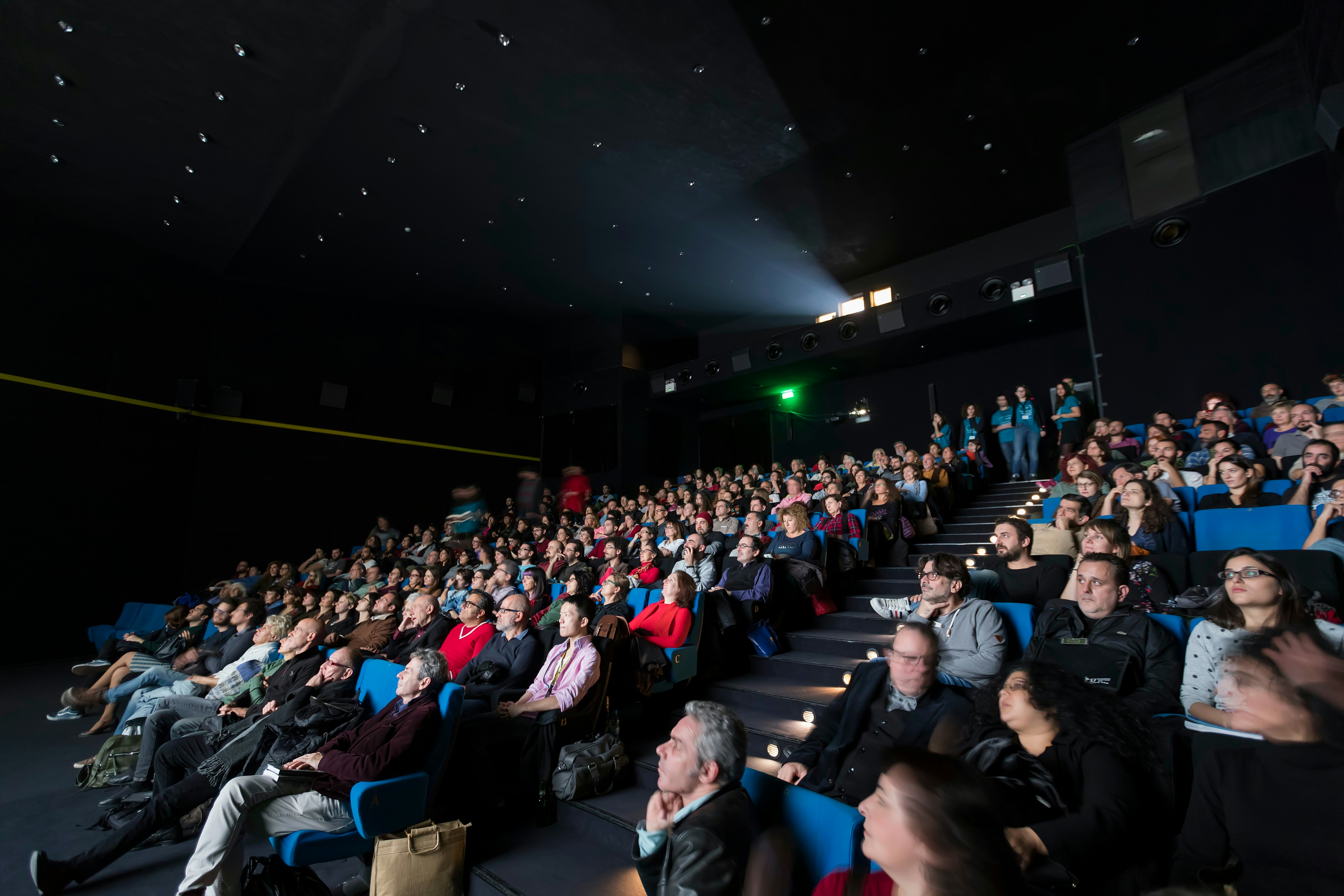
3. Connect with indie directors at the Thessaloniki International Film Festival
Greece’s second city of Thessaloniki takes the spotlight in November during the Thessaloniki International Film Festival, a significant stop on the international film circuit that draws filmmakers and passionate film buffs.
Emphasizing new, offbeat and independent productions, each year’s program crams more than 100 films into a schedule spanning barely 10 days. While themes vary by year, you can expect a lineup of exciting independent films by directors from all over the world. Retrospectives and special programs focus on the works of individual filmmakers; the festival also includes panel discussions and seminars on film production. The coveted Golden Alexander Award is the top prize.
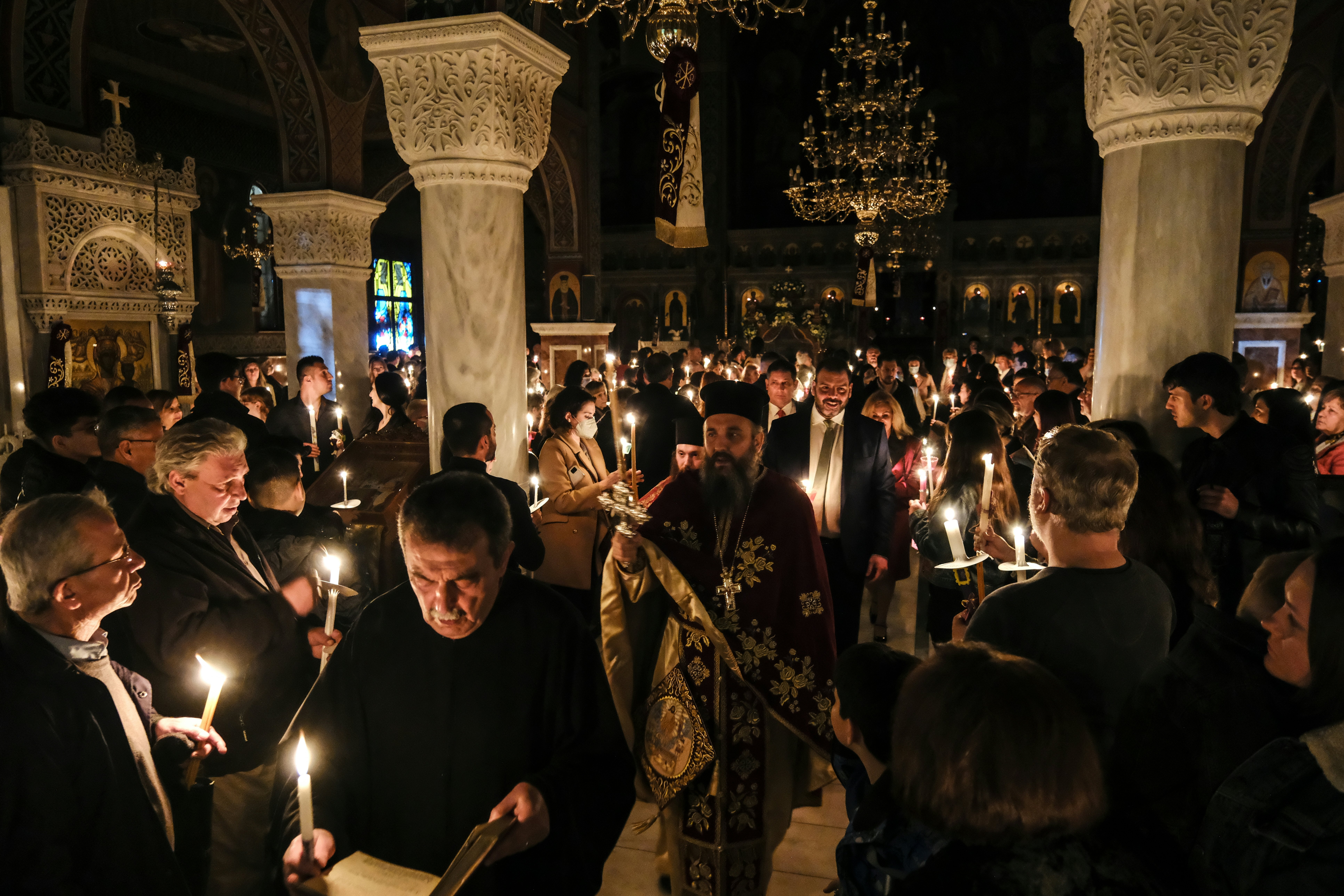
4. Mark the holiest time of the year during Orthodox Easter
In the Greek Orthodox Church, Easter – which marks the resurrection of Christ – is the biggest religious festival of the year, observed universally and with reverence. Just before Easter, Holy Week marks the climax of Lent, a period of devotion when even Greeks who aren’t deeply religious attend church. Falling in spring, Easter has deep seasonal symbolism, as nature itself sees a resurrection after the cold winter months. Indeed, the scent of flowers in the warm air adds an added sensory richness to the celebration.
All churches hold evening services during Holy Week, many featuring beautiful Orthodox hymns. Good Friday, the day of Christ’s death, is the peak of Holy Week, and most shops remain closed until the afternoon. While the faithful pack churches, a modern (and not very religious) tradition results in hordes of Athenians packing every fish restaurant and ouzerie in town to consume copious amounts of “fast-friendly” seafood.
On Easter Sunday, you’ll find lamb served everywhere, either roasted whole on a spit or chopped and grilled in the oven, while wine, beer and ouzo flow freely. Throughout the day, people crack countless red eggs against each other: in Orthodox Christian tradition, the red dye represents the blood of Christ, and the cracking of eggs symbolizes his resurrection from the dead.
5. Go a bit loony during August Moon celebrations
No matter where you are in Greece, the night of the August full moon is cause for celebration – a tradition that dates back millennia.
In Athens, archaeological sites like the Acropolis and the Agora become venues for concerts and performances, while more than 100 other historic sites throughout Greece host concerts, dance, poetry readings, plays, art exhibitions, film screenings and tours. All the events are free, including those on the sacred island of Delos, near Mykonos – and it’s well worth the journey there for this special time.
Just like the date of the August full moon, the venues and lineups change every year, so check local listings in advance.
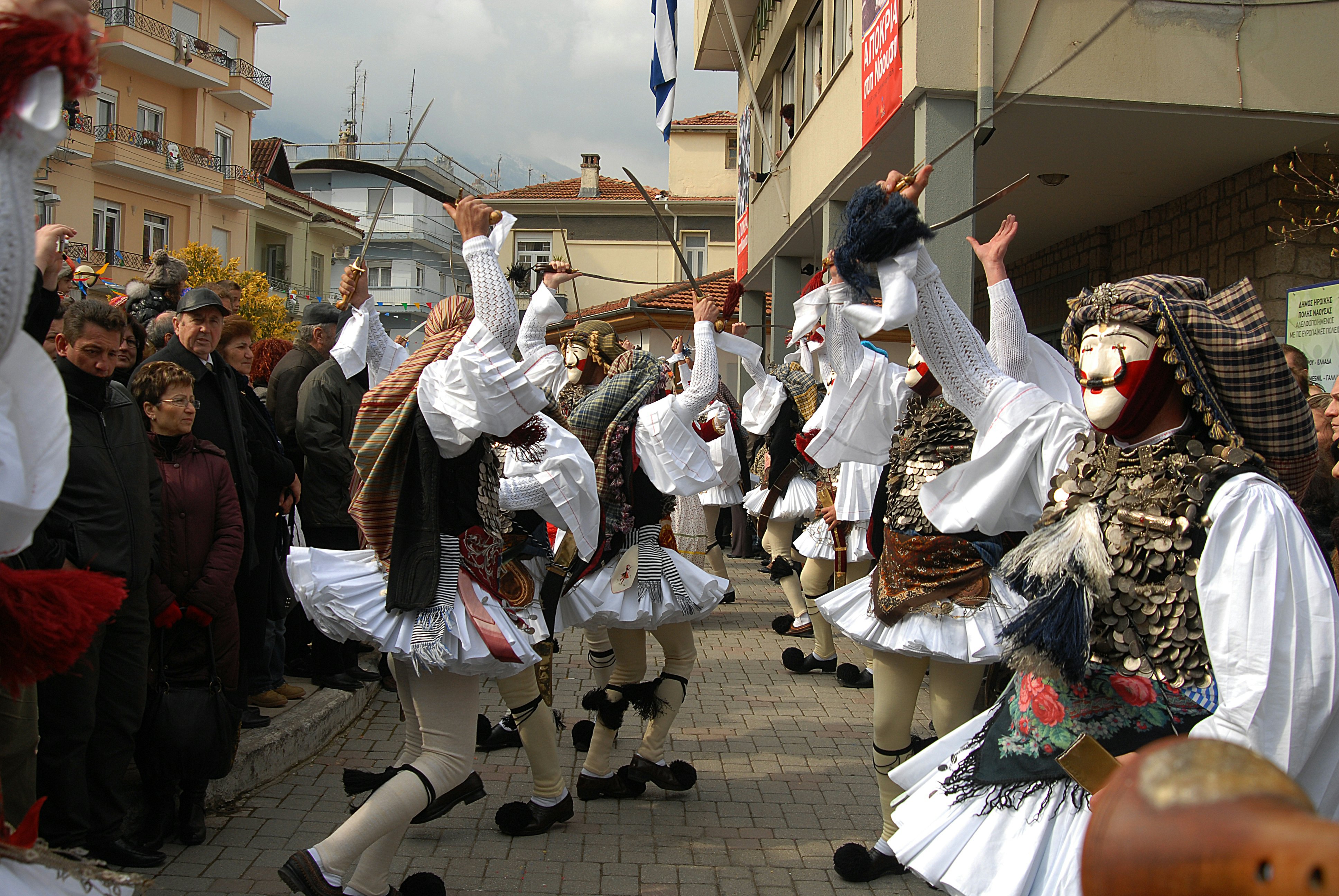
6. Party in the streets during Apokries, Greece’s Carnival season
In the three weeks leading up to Lent, Greeks celebrate the carnival season known locally as Apokries. While the festivities are tied to the Christian calendar, they have roots in ancient festivals honoring Dionysus, the god of wine and fertility. Greeks love participating in the fun atmosphere of Apokries, making February and March a wonderful time to visit the country. (The date of Apokries varies by year.)
In cities, nightlife gets revived after the quiet weeks following Christmas and New Year’s. Bars and clubs throw theme parties, and dressed-up revelers of all ages are a common sight in the streets and on public transport. The festivities peak on the last weekend – particularly on Sunday, when numerous outdoor celebrations, masquerades and parades take place.
While every part of the country has distinct customs and celebrations, we recommend traveling to Patra in the Peloponnese during the third weekend. The city fully embraces the festivities, with its giant Sunday parade bringing to mind images of Carnaval in Brazil. Just make sure you book a hotel well in advance – unless you’re up for a sleepless three-day party (you wouldn’t be the only one).








